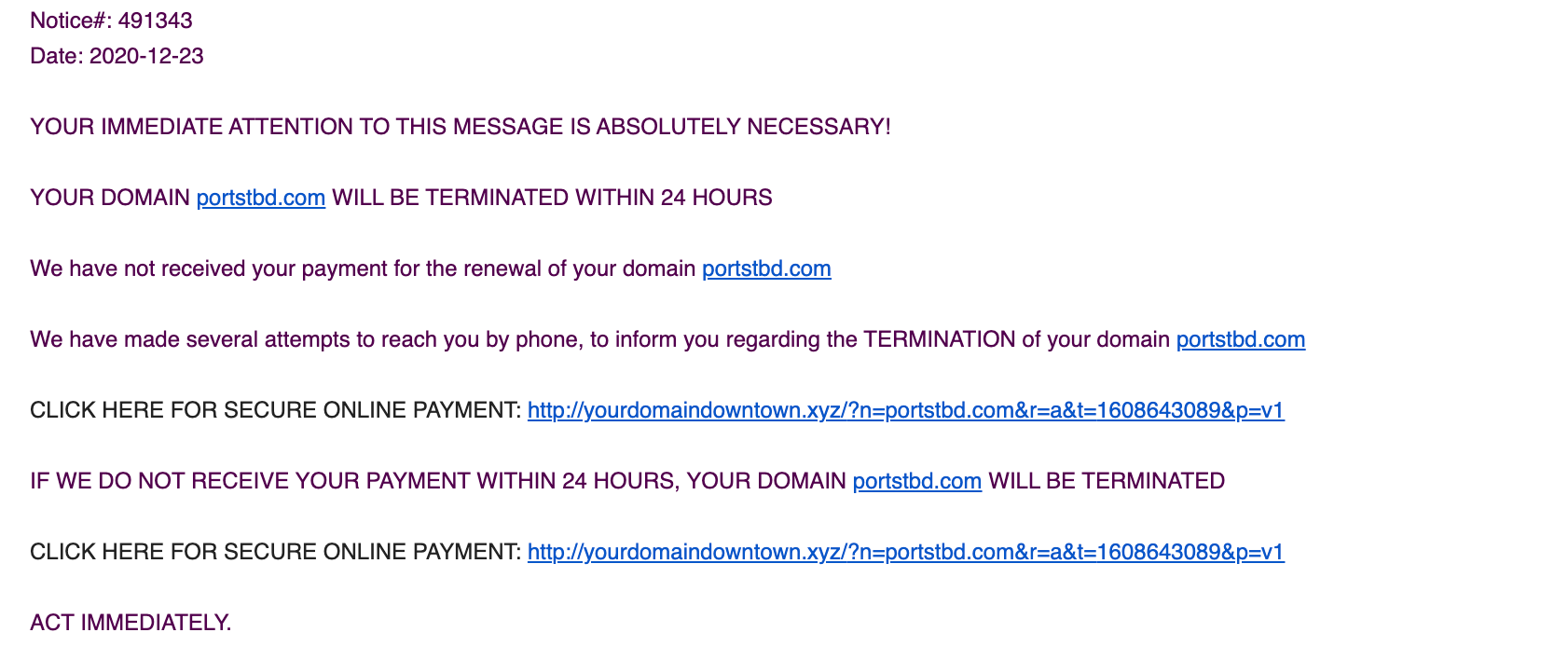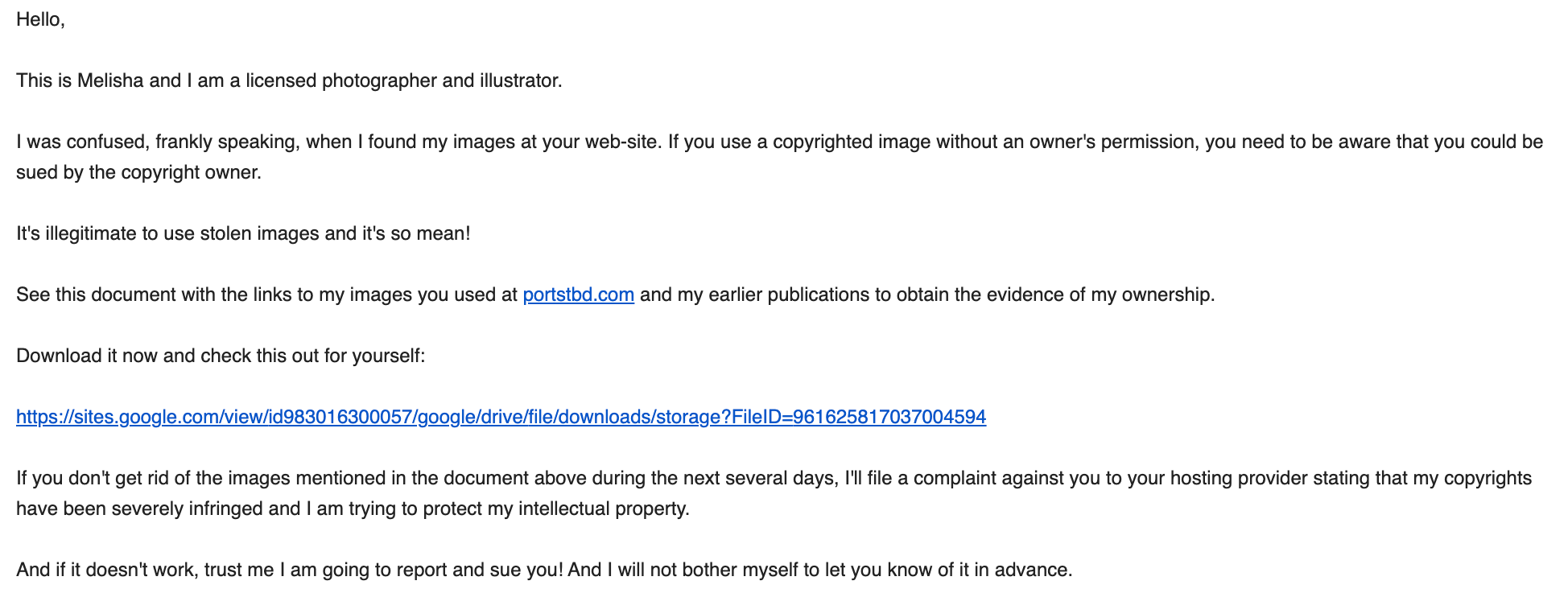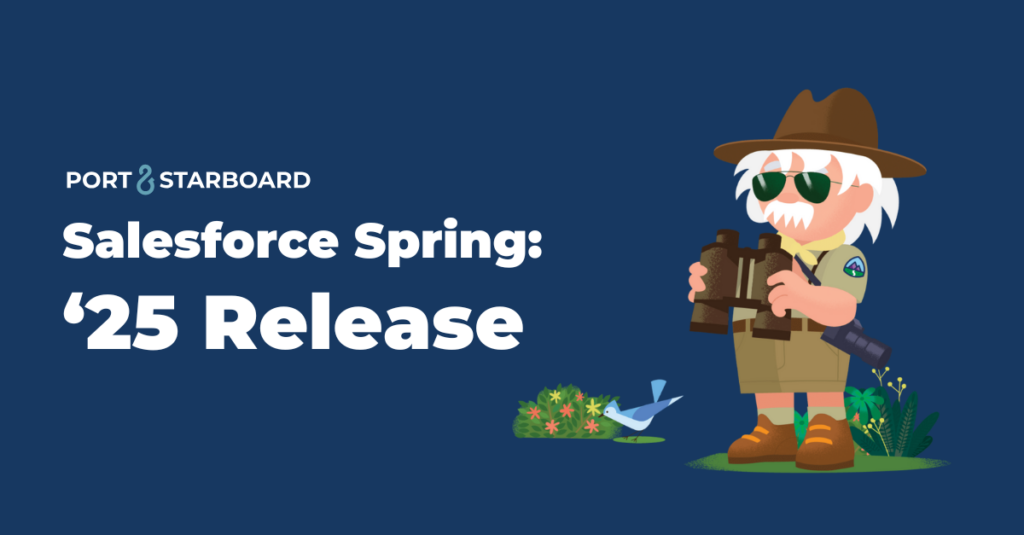 As we transition back to work in a new year, we need to stay vigilant when it comes to internet scams trying to harm your business. They evolve, figure out a new plan of attack and can trick even the most savvy individuals. Don’t fall for it! Here are some of the most common internet scams to look out for:
As we transition back to work in a new year, we need to stay vigilant when it comes to internet scams trying to harm your business. They evolve, figure out a new plan of attack and can trick even the most savvy individuals. Don’t fall for it! Here are some of the most common internet scams to look out for:
Domain Name Ownership Scam
Some person with a generic name will complete the contact form on your website and try to convince you that your domain name will expire in 24 hours if you don’t submit payment. There is usually a lot of all caps text and exclamation points involved to make you nervous and believe the legitimacy. Don’t be alarmed! And DEFINITELY do not click the links in the email and try to submit a payment. You would never be contacted in this manner regarding domain name discrepancies. Which to be honest, are very rare. This is a very common internet scam. Below is an example of the one we received.
Small Business Loan Scam
As if COVID-19 wasn’t enough of a hardship for small businesses, now they have to be on the lookout for scammers attempting to trick them into relief related loan internet scams. The Small Business Administration has explicitly stated that they would never reach out to you by email or phone and ask you to apply for a disaster loan, grant, or SBA Paycheck Protection Program. So if you receive a call or email regarding application or interest – it’s fake! If a lender is contacting you and asking for money upfront, doesn’t have a physical address or easy to find contact information, or uses a generic email address (@gmail.com, @yahoo.com, etc) then you should steer clear of submitting any information.
Copyright Photo Scam
Similar to the domain name ownership scam, someone submits a contact form on your site, but this time they are trying to accuse you of using imagery without permission. They will say their name and title, usually a photographer or illustrator and then include a “link to previous publications to prove evidence of their ownership.” Don’t click the link! They might also threaten legal action if you don’t pay them and take down the “infringed imagery.” Just delete this email and move on! Below is an example of the one we received.
Social Security Information Scam
A good rule of thumb is to never, ever give your Social Security Number to anyone. Over the phone, through email, in a social media private message, just don’t do it! You might receive communication stating your SSN has been compromised, linked to a crime, sending money out of the country, etc. Basically any instigating statement that would cause alarm. They will include the potential of losing benefits or your account being seized to really increase the drama. The best thing to do is hang up the phone or do not click any links in an email and call the real Social Security Administration number: 1-800-772-1213 and verify the legitimacy. You can also report fraud through this FTC website.
Bottom line: if you think a random email or unsolicited phone call is a scam, it probably is. Staying alert and vigilant will help you avoid falling victim to an internet scam that could cost you thousands of dollars. If you want insight on how to scale up security for your business and keep your assets protected online, contact us about our Fractional CIO services! We can evaluate your needs and make recommendations to keep you secure.






